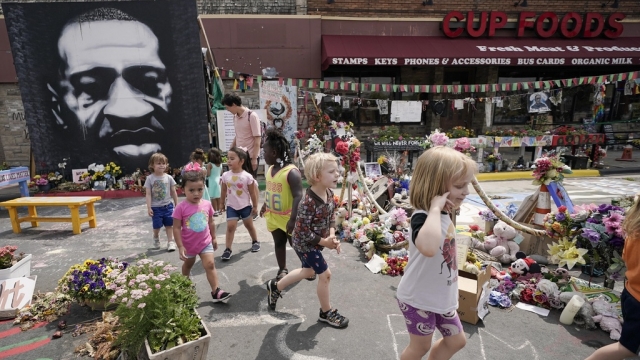The murder of George Floyd pushed millions into the streets calling for justice and police reform.
And while the officers involved in Floyd's death have been found guilty and are behind bars, some say, three years later, the structural problems that lead to Floyd's death have not been addressed.
The number of people killed by police annually has risen, according to The Washington Post. In fact, 2022 had the largest number of police shootings since 2015.
"We need to really fundamentally examine our entire system," said Puneet Cheema, manager of the Legal Defense Fund's Justice in Public Safety campaign.
Along with many other reforms, Cheema is calling for better data to accurately measure police behavior.
"Those are an undercount, and we don't know how much of an undercount," Cheema said. "This is an enormous problem that disparately impacts Black and Brown communities, disability communities, and our governments aren't even taking it seriously enough to measure it."
The FBI has attempted to create a national use of force database but has run into trouble due to a major lack of participation from local police.
One reform that has taken off is mental health response teams paired with police.
"87% of the calls that they go on do not end in custody," Cheema said.
Cities and counties in Texas, Colorado, Washington, New York and Georgia have launched programs to pair social workers with police.
"It's not just a police officer there to keep the safety under control; it's also the mental health clinician there to make sure that you get what it is that you need," Cheema said.
SEE MORE: What is the George Floyd Justice in Policing Act?
One in 4 fatal police shootings involve people with untreated severe mental illness, according to the Treatment Advocacy Center.
In the Obama and Biden administrations, consent decrees have been a popular tool for reforming departments.
The consent decree is a court order mandating a group of reforms that is agreed to by the Department of Justice and local law enforcement.
Nearly two dozen consent decrees are ongoing in places like Louisville, Chicago and Baltimore.
While effective, they have also been known to be expensive and lengthy.
The DOJ recently moved to end its consent decree with Seattle Police Department after more than 10 years.
Hanging over all of this is the George Floyd Justice in Policing Act.
"We demand that Congress pass the George Floyd Justice in Policing Act. Joe Biden will sign it," Vice President Kamala Harris said.
The bill enacts several reforms like banning no-knock warrants, changing the standard to prosecute officers from "willful" to "reckless" and creating a national "police misconduct registry."
But the bill has stalled in Congress on multiple occasions — often because of qualified immunity, which shields officers from being individually sued for their on-duty actions.
"It should go. Congress should eliminate it," said Marc Morial, president of the National Urban League and former mayor of New Orleans. "It's judge-made law. It gives a police officer protections that every other municipal employee does not have. Firefighter doesn't have it. The tax collector doesn't have it. The property assessor doesn't have it. The ambulance driver doesn't have it, and it creates an immunity that makes it harder to hold them liable."
In a statement, President Joe Biden once again called for passage of the George Floyd Justice in Policing Act.
"May we ensure that George Floyd's legacy and the legacy of so many others we also honor every day are not solely about their deaths, but what we do to honor their memory," he said.
Trending stories at Scrippsnews.com



